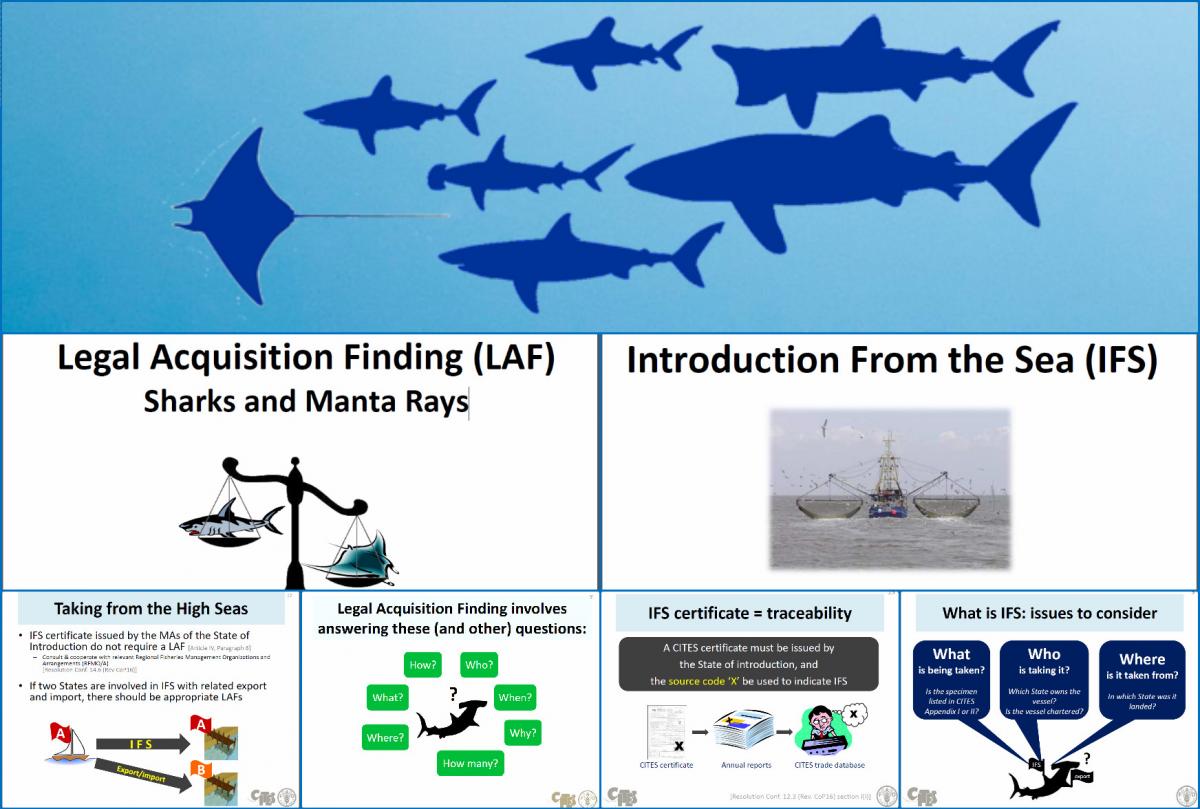For use of the media only;
not an official document.
PRESS RELEASE
New training tools for CITES-listed shark and manta rays
available on CITES Sharks Portal
20 October Geneva/Rome – With the finalization of two new presentations on the topics “legality” and “introduction from the sea” (IFS), CITES has now completed a set of standard presentations on topics pertaining to the CITES shark and manta ray listings. The presentations are designed to meet the needs of a diverse audience and they can be further adapted and used by all Parties and stakeholders as training materials.
 Part of the training materials were created in response to Decision 16.52, which states that “the Secretariat shall develop capacity-building tools and materials for use by Parties related to the implementation of the Convention for specimens taken from the marine environment not under the jurisdiction of any State”. The new training materials will also help the Parties to better understand issues concerning legality and IFS in implementing CITES-listed species.
Part of the training materials were created in response to Decision 16.52, which states that “the Secretariat shall develop capacity-building tools and materials for use by Parties related to the implementation of the Convention for specimens taken from the marine environment not under the jurisdiction of any State”. The new training materials will also help the Parties to better understand issues concerning legality and IFS in implementing CITES-listed species.
The new training materials were produced within the framework of the EU-CITES Project “Strengthening capacity in developing countries for sustainable wildlife management and enhanced implementation of CITES wildlife trade regulations, with particular focus on commercially exploited aquatic species”, and in close collaboration with the UN Food and Agriculture Organization (FAO).
See also:
- www.cites.org/prog/shark
- www.cites.org/eng/prog/shark/Information_resources_from_Parties_and_other_stakeholders
Note to editors: For more information, contact Liu Yuan at +41 22 917 8130 or yuan.liu@cites.org
About CITES
With 181 Parties, CITES remains one of the world's most powerful tools for biodiversity conservation through the regulation of trade in wild fauna and flora. Thousands of species are internationally traded and used by people in their daily lives for food, housing, health care, ecotourism, cosmetics or fashion.
CITES regulates international trade in over 35,000 species of plants and animals, including their products and derivatives, ensuring their survival in the wild with benefits for the livelihoods of local people and the global environment. The CITES permit system seeks to ensure that international trade in listed species is sustainable, legal and traceable.
CITES was signed in Washington D.C. on 3 March 1973 and entered into force on 1 July 1975.
Learn more about CITES by visiting www.cites.org or connecting to:
www.twitter.com/CITES
www.facebook.com/CITES
www.youtube.com/c/CITES
www.flickr.com/CITES
www.linkedin.com/company/cites-org